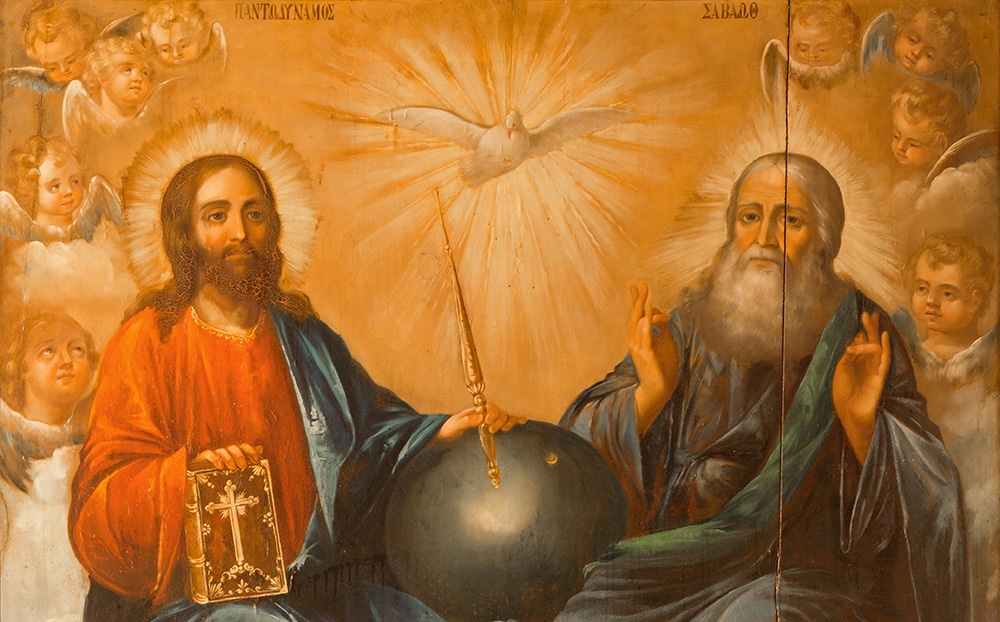 “From the Chapel” is a series of short, daily reflections on life and faith in a time of uncertainty. As people across the world cope with the effects of the coronavirus — including the social isolation necessary to combat its spread — these reflections remind us of the hope that lies at the heart of the Gospel.
“From the Chapel” is a series of short, daily reflections on life and faith in a time of uncertainty. As people across the world cope with the effects of the coronavirus — including the social isolation necessary to combat its spread — these reflections remind us of the hope that lies at the heart of the Gospel.
I woke up at 4 A.M. to a familiar sound. One of the downsides to living in an older house (or, at least, in all of the older houses we’ve lived in) is far too frequent visits from bats. Any visit, as far as I’m concerned, is too frequent, but over the last 20 years we’ve averaged at least one a year, and probably a bit more than that.
My iPad was alongside my bed, so I grabbed it and turned it on. The light from the screen was enough to confirm that, yes, a bat was hanging upside-down on the wall next to our bedroom door. The light was also enough to disturb the bat, who launched off the wall and began flying around the room. The butterfly net that we use to catch bats (which, again, says something about how bats are a regular part of our lives) was on our back porch, so I waited until our visitor settled into a regular transit around the room, jumped from the bed at the right point, and ran downstairs to retrieve the net.
Many years ago, I used to square off against bats with a broom, and then for a while I used a tennis racket. Both work fairly well — the racket, with its space between the strings, better than the broom — but once you’ve knocked the bat to the ground, you still have to figure out how to scoop it up and get it outside. (I hasten to add that no bats have ever been harmed in the creation of this story.) The butterfly net has most of the advantages of the tennis racket, and another one as well: Once you manage to get the bat inside, you can do a quick flick of your wrist, and the weight of the bat will cause the net to fold over the opening, trapping him inside. Then it’s back down the stairs and out the back door, where another flick of my wrist opens the net once again and the bat flies off into the night sky.
After an encounter with a bat, I rarely succeed in going back to sleep, and not just because of that one night a decade ago when a second bat made an appearance after I climbed back into bed after dealing with the first one. This morning was no exception.
As I lay there in the dark, questioning every sound I heard, I started thinking about bats and why I find it relatively easy to capture them in nets. When a bat begins flying around in a defined space, he enters (as I mentioned above) into a defined transit. Within that room, he becomes very quickly a creature of habit. He doesn’t know where he’s going; he only wants to get out; but his echolocation tricks him into flying the longest possible route. He’s flying blind, and thus I have the advantage.
There’s a lesson here for us. The bat and I are battling it out in the same moment of time, but my advantage over him is much like the hindsight that we have when we look back on history, or on our own past actions. Too often we find ourselves flying blind, not knowing enough about where we’re headed or the situation we find ourselves in to make a fully rational decision. Somewhere down the line, we may be able to see more clearly and judge whether we acted rightly or wrongly; but in the moment we have to rely on our best judgment, on a conscience well formed and the virtue of prudence.
That’s why it’s so important to form our conscience, to cultivate the virtues, and to resist the temptation to cut moral corners during those times when we can see clearly. Character, virtue, a well-formed conscience — all of these prove their worth not so much when life is going well, but in those moments when we find ourselves flying blind.
Scott P. Richert is publisher for OSV.



